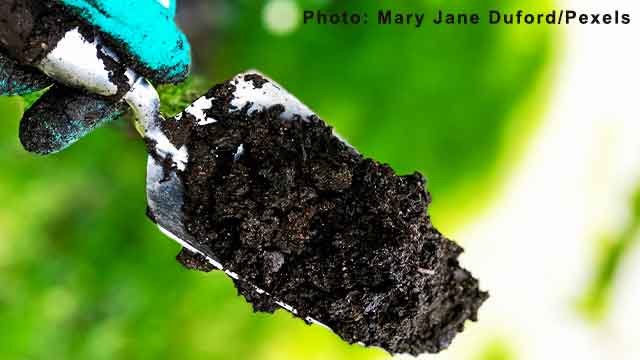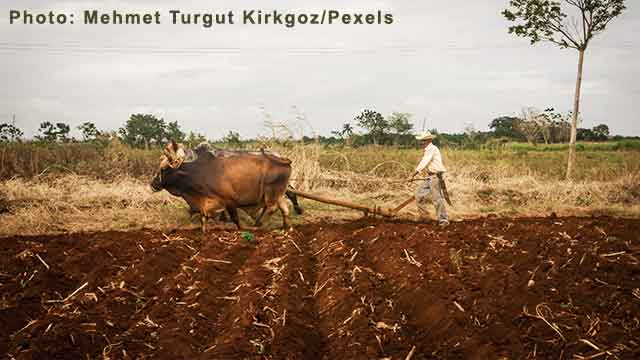In recent years, there has been a growing concern about the long-term impact of conventional farming methods on the environment and human health. As a result, organic farming has gained significant traction as a sustainable alternative that promotes biodiversity, soil health, and ecosystem preservation.
Understanding Organic Farming
Organic farming is an agricultural approach that relies on natural processes and avoids the use of synthetic pesticides, genetically modified organisms (GMOs), and chemical fertilizers. Instead, organic farmers employ a range of holistic practices to maintain soil fertility, control pests, and nurture healthy crops. These methods include crop rotation, composting, biological pest control, cover cropping, and the use of organic fertilizers.
Key Principles of Organic Farming
Key principles of organic farming includes:
Soil Health:

Organic farming places great emphasis on maintaining and improving soil health. The soil is viewed as a living ecosystem, and organic farmers employ practices that promote soil fertility and structure. These practices include the use of compost, organic manure, cover crops, and crop rotation. Compost, rich in organic matter, enhances soil structure, nutrient content, and water-holding capacity. By avoiding synthetic fertilizers and chemical inputs, organic farming nurtures a robust and balanced soil ecosystem.
Biodiversity:
Organic farming recognizes the importance of biodiversity in creating resilient and sustainable agricultural systems. Organic farmers strive to preserve and enhance biodiversity by promoting a variety of plants, animals, and insects within and around their farms. They adopt techniques such as intercropping, agroforestry, and the creation of hedgerows to provide habitats for beneficial insects, birds, and other wildlife. By fostering biodiversity, organic farms can naturally control pests, increase pollination rates, and improve overall ecosystem health.
Prohibition of Synthetic Inputs:
One of the fundamental principles of organic farming is the avoidance of synthetic pesticides, herbicides, and fertilizers. Instead, organic farmers rely on natural methods to manage pests and diseases. Integrated Pest Management (IPM) strategies are employed, which involve the use of crop rotation, trap crops, beneficial insects, and physical barriers to control pests effectively. Weed management is achieved through techniques such as mulching, hand weeding, and mechanical cultivation. The exclusion of synthetic inputs reduces chemical residues in crops, minimizes environmental contamination, and protects the health of farmers and consumers.
Animal Welfare:
Organic farming extends its principles to livestock production, emphasizing the ethical treatment of animals. Organic livestock are raised in an environment that allows them to express their natural behaviors, with access to outdoor spaces and freedom of movement. They are provided with organic feed that is free from GMOs, growth hormones, and antibiotics. By prioritizing animal welfare, organic farming promotes a more sustainable and humane approach to livestock production.
Conservation of Resources:
Organic farming recognizes the importance of conserving natural resources such as water and energy. Practices such as water-efficient irrigation systems, rainwater harvesting, and the use of cover crops help to minimize water usage and prevent soil erosion. Organic farms often implement renewable energy sources, such as solar power, to reduce dependence on non-renewable energy. These resource conservation measures contribute to the overall sustainability of organic farming systems.
Continuous Improvement:
Organic farming is not a static concept but an ongoing journey of learning and improvement. Organic farmers are encouraged to engage in research, experimentation, and knowledge-sharing to refine their practices. This commitment to continuous improvement allows organic farming to adapt to new challenges, incorporate innovative techniques, and optimize productivity while maintaining ecological harmony.
Benefits of Organic Farming:
There are several benefits of organic farming. Some of them are listed below:
Environmental Conservation:
Organic farming methods prioritize the protection of the environment. By avoiding synthetic pesticides and chemical fertilizers, organic farmers reduce the risk of water and soil contamination. Organic practices also promote biodiversity by providing habitats for beneficial insects, birds, and other wildlife. This conservation of ecosystems helps maintain ecological balance and preserve natural resources.
Soil Health:
Organic farming focuses on building and maintaining healthy soil. By incorporating organic matter through practices such as composting, crop rotation, and cover cropping, organic farmers improve soil structure, fertility, and moisture retention. Healthy soil is essential for nutrient-rich crops, erosion prevention, and long-term sustainability.
Reduced Chemical Exposure:
Organic farming eliminates the use of synthetic pesticides and chemical fertilizers, which can have detrimental effects on human health. By consuming organic produce, individuals can reduce their exposure to potentially harmful chemicals, promoting overall well-being.
Nutritional Value:
Organic crops are often found to contain higher levels of certain nutrients, including vitamins, minerals, and antioxidants. Studies have shown that organic fruits and vegetables can have increased nutritional value compared to conventionally grown produce. This is attributed to the healthy soil conditions and natural farming practices employed in organic farming.
Improved Water Quality:
Organic farming practices, such as crop rotation and cover cropping, help reduce soil erosion and improve water infiltration. By preventing excessive runoff and the leaching of harmful chemicals, organic farming contributes to better water quality and the preservation of aquatic ecosystems.
Climate Change Mitigation:
Organic farming can play a role in mitigating climate change. Organic practices, such as the use of organic matter and cover crops, increase soil organic carbon content, thus sequestering carbon dioxide from the atmosphere. Additionally, organic farming systems often prioritize renewable energy sources and energy-efficient practices, further reducing carbon emissions.
Preservation of Genetic Diversity:
Organic farmers typically prioritize heirloom and traditional crop varieties, contributing to the preservation of genetic diversity. This helps maintain a wide range of plant traits and promotes resilience in the face of changing environmental conditions and potential disease outbreaks.
Support for Local Economies:
Organic farming often thrives on local and regional markets, allowing farmers to establish direct relationships with consumers. By supporting organic farmers, consumers contribute to the growth of local economies, promote sustainable agriculture, and reduce the carbon footprint associated with long-distance transportation of food.
Antibiotic Resistance Reduction:
In organic animal agriculture, the use of antibiotics for growth promotion or disease prevention is prohibited. This reduces the risk of antibiotic resistance development, benefiting both animal and human health by preserving the effectiveness of antibiotics for medical treatment.
Enhanced Animal Welfare:

Organic livestock production adheres to strict animal welfare standards. Organic animals have access to outdoor areas, ample space to move, and a diet that meets their natural requirements. This promotes healthier and happier animals, allowing them to exhibit natural behaviors and reducing the need for antibiotics or other interventions.
Social Benefits:
Organic farming often prioritizes fair trade practices and promotes the well-being of farmworkers. By providing safe working conditions, fair wages, and access to training and education, organic farming contributes to a more equitable and sustainable agricultural sector.
Challenges associated with Organic Farming
While organic farming offers several benefits, it also presents certain challenges. Here are some of the challenges associated with organic farming:
Transition Period and Certification:
One of the main challenges faced by farmers interested in transitioning to organic farming is the mandatory transition period. During this period, which typically lasts three years, farmers must follow organic practices without being able to label their products as certified organic. This can pose financial challenges as farmers may not receive the premium prices associated with certified organic products during this period.
Higher Production Costs:
Organic farming often requires higher initial investments and ongoing costs compared to conventional farming. Organic inputs such as organic seeds, compost, and natural pest control methods can be more expensive than their conventional counterparts. The costs associated with organic certification, inspection, and record-keeping add to the financial burden, particularly for small-scale farmers.
Lower Yields:
In some cases, organic farming may yield lower crop yields compared to conventional methods. This is primarily due to the reliance on natural fertilizers and the limitations in pest control. Organic farmers often face challenges in managing pests, diseases, and weeds, which can reduce overall productivity. However, with proper knowledge, experience, and implementation of effective organic farming techniques, yield gaps can be minimized.
Limited Access to Markets:
Organic farmers, especially small-scale producers, may face challenges in accessing organic markets and securing fair prices for their products. The demand for organic products varies by region, and establishing reliable distribution networks and market connections can be challenging. Organic farmers may need to invest in marketing efforts, certifications, and building relationships with consumers and retailers to overcome these barriers.
Pest and Disease Management:
Organic farmers rely on natural methods for pest and disease management, such as crop rotation, beneficial insects, and resistant crop varieties. However, effectively managing pests and diseases without synthetic chemicals can be more complex and time-consuming. It requires careful monitoring, knowledge of pest life cycles, and implementation of integrated pest management (IPM) strategies to control outbreaks and minimize crop damage.
Knowledge and Training:
Adopting organic farming practices requires a deep understanding of organic principles, soil management techniques, pest control methods, and crop rotation strategies. Access to comprehensive training and educational resources can be limited, particularly in certain regions or for farmers with limited resources. Bridging the knowledge gap and providing ongoing training and support is essential to help farmers successfully transition to and practice organic farming.
Weeds and Weed Control:
Organic farmers face challenges in managing weeds without the use of synthetic herbicides. Weeds compete with crops for resources such as water, nutrients, and sunlight, potentially reducing crop yields. Organic farmers employ various strategies like mulching, hand weeding, cover cropping, and mechanical cultivation to control weeds. However, these methods can be labor-intensive and time-consuming, requiring significant manual labor and farm management skills.
Organic Fraud and Integrity:
Maintaining the integrity of organic certification and preventing fraud is a constant challenge for the organic industry. Some farmers or businesses may misrepresent their products as organic or fail to comply with organic standards. This undermines consumer trust in organic products and can lead to market distortions. Ensuring robust certification processes, regular inspections, and effective enforcement mechanisms is crucial for maintaining the credibility and integrity of the organic farming sector.
Future Outlook of Organic Farming

The future outlook of organic farming is promising as it continues to gain recognition and popularity worldwide. Here are several key factors that contribute to the positive future of organic farming:
Increasing Consumer Demand:
Consumer awareness and demand for organic products have been steadily rising in recent years. People are becoming more conscious of the environmental and health benefits associated with organic farming. This growing demand encourages farmers to adopt organic practices and provides market incentives for the expansion of organic agriculture.
Supportive Government Policies:
Many governments around the world are recognizing the importance of organic farming and are implementing supportive policies. These policies include financial incentives, grants, and subsidies for organic farmers, as well as regulations to ensure organic integrity and labeling standards. Governments are also investing in research and development to improve organic farming techniques and address specific challenges.
Technological Advancements:
Advances in technology are aiding the development of organic farming. Precision agriculture technologies, such as remote sensing, GPS, and data analytics, enable farmers to optimize resource management and improve efficiency in organic farming systems. Innovation in organic pest control methods, such as the use of pheromones, biopesticides, and beneficial insects, is also enhancing pest management practices.
Research and Knowledge Sharing:
Ongoing research and knowledge sharing within the organic farming community are crucial for its continued growth. Universities, research institutions, and organizations are conducting studies to improve organic farming techniques, develop new organic inputs, and address challenges related to pest control, soil fertility, and yield optimization. The dissemination of this knowledge through conferences, workshops, and online platforms benefits farmers and supports the advancement of organic agriculture.
Organic Certification and Standards:
Rigorous organic certification processes and standards ensure the integrity of organic products. The establishment and enforcement of consistent organic standards across countries and regions provide consumers with confidence in the authenticity of organic products. The continued improvement and harmonization of these standards contribute to the global growth and acceptance of organic farming.
Climate Change Adaptation:
Organic farming systems, with their focus on soil health, biodiversity, and water conservation, are well-positioned to mitigate and adapt to the impacts of climate change. Organic practices, such as carbon sequestration in soils, reduced greenhouse gas emissions, and water management techniques, help build resilience in agricultural systems. The potential of organic farming to contribute to climate change mitigation and adaptation positions it favorably in the future.
Collaboration and Networking:
Collaboration among organic farmers, researchers, policymakers, and consumers plays a vital role in the future of organic farming. Sharing best practices, exchanging experiences, and creating networks facilitate knowledge transfer and innovation. Farmer-to-farmer initiatives, organic farming associations, and online platforms connect stakeholders, enabling them to learn from each other and collectively address challenges.
Sustainable Food Systems:
The need for sustainable food systems is gaining global attention. Organic farming aligns with the principles of sustainability by promoting ecological balance, conserving resources, and supporting local economies. As the focus on sustainability intensifies, organic farming is likely to play an integral role in transforming food systems towards more environmentally friendly and socially equitable practices.
FAQs:
-
What factors contribute to the positive future of organic farming?
The increasing consumer demand, supportive government policies, technological advancements, research and knowledge sharing, and focus on sustainable food systems contribute to the positive future of organic farming.
-
How does organic farming address climate change?
Organic farming systems promote practices such as carbon sequestration, reduced greenhouse gas emissions, and water management techniques, making them well-suited to mitigate and adapt to the impacts of climate change.
-
Why is organic certification important for the future of organic farming?
Rigorous organic certification processes and standards ensure the authenticity of organic products, providing consumers with confidence and contributing to the global growth and acceptance of organic farming.
-
How does technology support the future of organic farming?
Technological advancements, such as precision agriculture tools and innovations in organic pest control methods, enhance resource management, efficiency, and pest management practices in organic farming systems.
-
How does collaboration and networking benefit the future of organic farming?
Collaboration among organic farmers, researchers, policymakers, and consumers facilitates knowledge transfer, innovation, and collective efforts to address challenges, supporting the future growth and development of organic farming.
-
What is the transition period in organic farming?
The transition period is a mandatory period lasting around three years during which farmers adopt organic practices without being able to label their products as certified organic.
